The Ultimate Guide to Cooking Fish-Excerpt
Table of Contents
I: Fish—Why Bother?
II: Cooking Fish the Indian Way
Chapter 1: Fish Starters
Basic Indian Fish Fry
Spicy Fish Fry
Tandoori Fish
Fish Amritsari
Fish Pakoras (Fritters)
Fish 65
Chapter 2: Fish Curries
Masalewali Machhi (Spicy Fish Curry)
Fish in Creamy Tomato Curry
Machhi Do Pyaza (Fish with fried onions)
Thick Fish curry
Machher Jhol (Fish Cooked in a Light Curry)
Machher Tak (Fish Cooked In a Tangy Tamarind Sauce)
Tamater Sarson Machhali (Fish Cooked In a Tangy Tomato and Mustard Sauce)
Dahi Sarson Machhali (Fish cooked in a Yoghurt and Mustard paste)
Dahi Macchh (Fish in flavourful yoghurt sauce)
Fish Kofta Curry
Fish Chilly
Meen Moily (Fish Kerala style)
Parsi Machchi (Fish Parsi Style)
Fish Chettinad (Fish cooked in a rich coconut Curry)
Chapter 3: The Raj Effect
Fish Fry or Fish Fingers with Crumbs
Grilled Fish
Fish Cocktail
Fish Chops
Fish Bell Pepper (Capsicum)
Fish with Veggies in White Sauce
Fish and Rice in Béchamel Sauce
Chapter 4: Cooking Prawns the Indian way
Spicy Prawn Fry
Prawn 65
Prawns Tamilian (Prawns cooked in a rich coconut Curry)
Prawn Malai Curry (Prawns in a mild coconut and cream curry)
Jhinga Curry (Prawns Cooked in a Light Curry)
Prawn Punjabi
Jhinga Makhni (Prawns in Rich Tomato Curry)
Prawns in Tomato Sauce
Stir Fried Prawns with Vegetables
Prawn Stir Fried Rice
Parsi Jhinga (Prawns Parsi Style)
Masaledar Jhinga (Spicy Prawn Curry)
Chapter 5: Cooking Fish Head and Fish Eggs—the Indian Way
Machher Muro Dal (Fish Head with Split Chick Pea)
Lauki Machher Muro (Fish Head with Bottle Gourd)
Palak Baingan Machher Muro (Spinach-Aubergine with Fish Head)
Fish Egg Pakoras (Fritters)
Rice Boiled
The Classic Indian Roti/Phulka/Chapati
Appendix: An Introduction to Some Basic Indian Spices
A Big Thank You for Reading This Book till the End
Your FREE Gift
Other Books By The Author
Books by the Author in the Quiet Phoenix Series
Books by the Author in the Self-Publishing Without Spending a Dime Series
Connect With The Author
About The Author
I: Fish—Why Bother?
Image Courtesy of Pakorn/FreeDigitalPhotos.net
When you fish for love, bait with your heart, not your brain.
Mark Twain
Give a man a fish and you feed him for a day. Teach a man to fish and you feed him for a lifetime.
Chinese Proverb
Nice thoughts above, if you want to use fish as a verb or metaphor. But are you sure you’d like to put that little slimy, smelly thing, that only Penguin and Eskimos appear to be fond of, on your plate?
Do you wonder if there are really some people in the world who instead of plumping for the robust chewiness of the red meat steak prefer instead the “insipid”, “characterless” taste of the fish?
Does the word “fishmonger” gives you the same negative ring as do the words “fear monger” or “rumour monger”?
Are you of the firm opinion that a can of tuna is best suited only for your cat?
Then certainly you are not alone.
But you may be in danger of belonging to a near extinct tribe of people who don’t realise the enormous benefits of including fish in their diets.
Fish has lately acquired a formidable reputation for being a source of low calorie, high protein, waist-slimming, “brain food,” that is bristling with selenium, zinc, iodine, potassium, vitamins A & D and such long strands of polyunsaturated Omega-3 fatty acids that you just can’t get from your favourite prime cut of red meat, unfortunately.
Research indicates that even if you’re not a fish fan, eating fish only once or twice a week can be enough to reverse the cholesterol laden disadvantages of eating red meat. The National Institute of Health recommends that people consume at least 2 percent of their total daily calories as Omega-3 fatty acids. For an 1800 calorie diet, this comes to about 3.6 grams per day which you can get easily from just two (four-ounce or approx. 100 gram) pieces of salmon.
Yes, you can also get your daily recommended dose of Omega-3 through fish oil supplements; or if you are a strict vegetarian, from such sources as flaxseed, flaxseed oil, walnuts, canola oil, soybeans and soybean oil. However, similar to the use of non-prescription supplements, the evidence of health benefits from eating these pills isn’t as strong as it is from eating fish.
Researchers by now have been able to catalogue as many as ten solid reasons for adding a portion of fish to your diet to improve your overall health:
* Reduce dementia and Alzheimer’s Risk: According to a study presented to the Radiological Society of North America, people who ate fish had larger cells in those areas of the brain which are responsible for memory and learning, and which can help lower the risk of cognitive decline leading to dementia or the dreaded Alzheimer’s disease.
* Prevent Heart Disease: A Danish study of 49,000 women, that was published in Hypertension: Journal of the American Heart Association, found that women who ate little to no fish had 50 percent more heart problems than those who ate fish at least once a week. Omega-3 fatty acids were otherwise found to decrease triglycerides, lower blood pressure, reduce blood clotting, decrease stroke and heart failure risk, and reduce irregular heartbeats
* Improve Skin and Hair: One of the biggest side effects of following any diet is the adverse effect on your skin and hair. The Omega-3s in fish, however, are the kind of “healthy fat” that can keep your skin glowing and your hair shiny without adding on to your waistline.
* Ease Depression: Several studies have found that when taken along with antidepressant medicines, the Omega-3s in fish are found to be more effective at treating depression than just prescription medication.
* Boost Brain Development: Omega-3s are also found to boost brain development in children. Some studies have even found Omega-3 consumption to be soothing symptoms of Attention Deficit Hyperactivity Disorder (ADHD) that some children are afflicted with.
* Excellent source of Vitamin D: Fish is a sun-less source of vitamin D, which boosts immunity, improves bone health, and in conjunction with the Omega-3s in fish, wards off cognitive decline. Just one four-ounce (approx. 100 gram) serving of salmon contains 75 percent of your daily recommended amount of this wonderful vitamin.
* Better fertility: While fish is not exactly an aphrodisiac, studies show that men who ate more fresh fish were more virile than those who ate unhealthy diets. Similarly women eating fish during pregnancy appear to have a lesser risk of delivering a premature baby
* Better eyesight: Studies indicate that breastfed babies of mothers who ate fish had better eyesight, perhaps due to the Omega 3 fatty acids transmitted in breast milk.
* Reduces the risk of developing cancer: Research is close to establishing a link between eating fish and reducing the risk of developing cancers, especially of the oral cavity, oesophagus, colon, breast, ovary and prostate, by 30 to 50 per cent.
* Alleviates inflammatory conditions: – Eating fish appears to also help in reducing the symptoms of rheumatoid arthritis, psoriasis, diabetes, childhood asthma and other autoimmune diseases.
Convinced somewhat? Let’s then proceed to how you can include fish in your diet in the most flavourful ways that are known to mankind.
Food for Thought
“Give a man a fish, and you’ll feed him for a day. Teach a man to fish, and he’ll buy a funny hat. Talk to a hungry man about fish, and you’re a consultant.”
― Scott Adams
(This is an excerpt from my 207 page e-Book “The Ultimate Guide to Cooking Fish the Indian Way” which is available at a bargain PRE-ORDER price of US $0.99 (or equivalent) on all major e-book platforms (such as Amazon, Apple iBook’s store, Nook, Kobo, Scribd and Google Play) only till 31 May 2015. Prices shall go up to US $4.99 thereafter.
Use Facebook to Comment on this Post
- Posted by
 Prasenjeet
Prasenjeet - Posted in Fish & Fowl
 May, 23, 2015
May, 23, 2015 No Comments.
No Comments.
Welcome to Cooking in a Jiffy!
If you have been looking for recipes that are truly “Home style”, you have come to just the right place. Read more
Amazon #1 Hot New Releases in Healthy diets
Amazon # 3 Best Seller in Healthy diets
Now Also Available in Portuguese
Categories
- Coolers (3)
- Fish & Fowl (17)
- Health (14)
- How to cook in a jiffy e-book (23)
- Interesting facts (10)
- King's Breakfast (8)
- Our Sweethearts (5)
- Pan Asian (3)
- Rice dishes (6)
- Snacks & Accompaniments (3)
- The Raj effect (3)
- Uncategorized (2)
- Veggie wonders (9)

 Food is never a problem for those who love to cook.
Food is never a problem for those who love to cook.








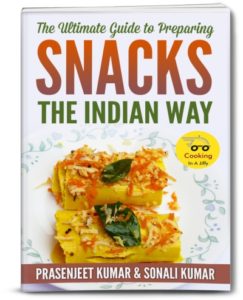

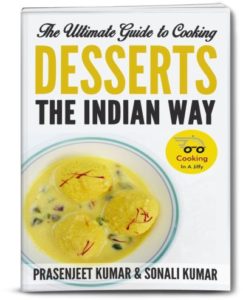

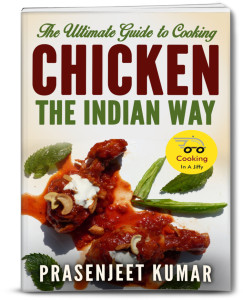
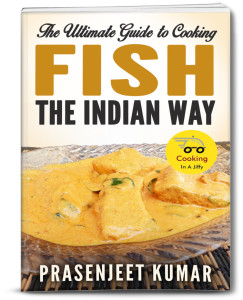
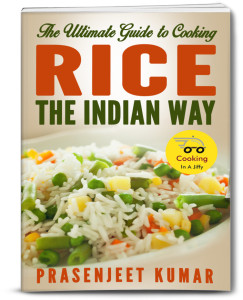
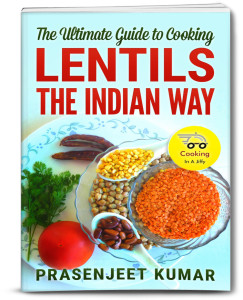

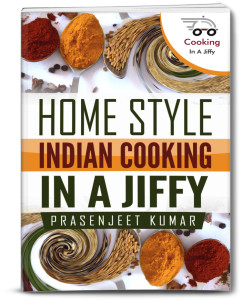


 Join Us On Facebook
Join Us On Facebook Join Us On Twitter
Join Us On Twitter Subscribe to Our Blog
Subscribe to Our Blog